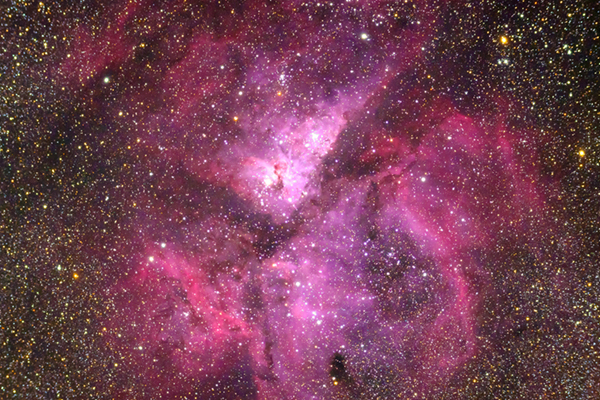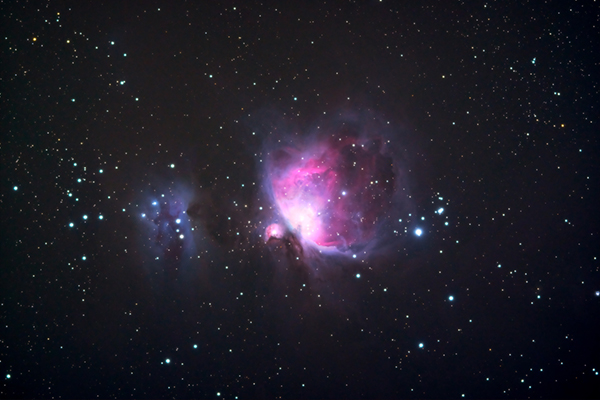[vc_row css_animation=”” row_type=”row” use_row_as_full_screen_section=”no” type=”full_width” angled_section=”no” text_align=”left” background_image_as_pattern=”without_pattern” padding_top=”36″ padding_bottom=”36″][vc_column]
Our workshop will give you the fundamental understanding of nighscapesd and astrophotography – which will offer you various astrophotography techniques that can help you get started in your chosen field. Learn how to produce nightscapes, wide field deep, lunar and solar photography.
As part of the workshop you will see in person a wide range of equipment including telescopes, mounts, tripods, cameras, lenses, filters, software (control and data processing) and more. See how these pieces of equipment and software work together, allowing you to capture the night sky.
Exploring Astrophotography is a 1-day workshop held on a weekend.
Optional Night at the Observatory
Join us for 3 hours at the Perth Observatory where you will be able to put your newly learned knowledge to practice. Learn about the kinds of equipment the observatory utilises to take photographs and have the opportunity to take your own under the guidance of the lecturer.
If time and conditions permit, you may also have the chance to take a photograph of a selected target through one of the telescopes.
Night at the Observatory is at the mercy of weather conditions and may have to be postponed for a night with clear skies.
Star Viewing Night is optional and at an additional cost of $69. (discuss with lecturer on the night)[/vc_column_text][vc_empty_space height=”22px”]Book Now[/vc_column][/vc_row][vc_row css_animation=”” row_type=”row” use_row_as_full_screen_section=”no” type=”full_width” angled_section=”no” text_align=”left” background_image_as_pattern=”without_pattern”][vc_column][vc_separator type=”normal” color=”#d3d3d3″ thickness=”2″ up=”22″ down=”0″][vc_tabs style=”horizontal_left”][vc_tab title=”Equipment and Prerequisites” tab_id=”71a7a89b-f3de-7″][vc_column_text]Equipment
- Your DSLR
- Laptop (optional)
- Notepads and pens will be dispensed
Star Viewing Night
- Your DSLR
- Tripod – you will get a chance to take photographs on your own as well as the opportunity to utilise a specialised astrophotography mount for longer exposures
- Sturdy enclosed footwear
- Warm clothing
- Torch or head torch (recommended)
Prerequisites
- Students must have a sound understanding of their camera’s functions and are confident in the use of Manual Mode
Star Viewing Night
- To be physically fit to stand for long periods and climb 65 steps
[/vc_column_text][/vc_tab][vc_tab title=”Course Outline” tab_id=”7d1593ba-7855-1″][vc_column_text css=”.vc_custom_1484546783779{margin-top: 1px !important;}”]Introduction
- About the workshop
- Examples of astrophotography to set context
- What is astrophotography, including the different types of astrophotography
Equipment
- Tripods & mounts (tracking and fixed)
- DSLR & Mirrorless cameras, what suits and advantages/disadvantages
- Lenses that suit wide field astrophotography and nightscapes
Exposing Nightscapes
- Set up camera gear
- Configure settings
- Complete configuration of equipment used
- Tips & tricks
Processing Nightscapes
- Basic introduction to concepts
- Demo using free available software
Introduction to Specific Scenarios
- Night sky wide field
- Nightscapes
- Lunar & Solar
- Aurora
- Meteor showers
Where to Go From Here
- Locations
- Retailers/suppliers
- Clubs & groups
- Websites & more info
[/vc_column_text][/vc_tab][vc_tab title=”About the Lecturer” tab_id=”1445165956008-2-0″][vc_column_text css=”.vc_custom_1462785828125{margin-top: 1px !important;}”]Roger Groom is a software developer from Perth who practices astrophotography and amateur astronomy by night.
Starting in the late 1990’s, Roger’s photographic and astronomy experience was accelerated by the purchase of a Pentax SP1000 and his first telescope a 114mm Newtonian. In addition to his own photography practice, Roger has been an active member in the local and national amateur astronomy community. He has given many event talks and workshops and is a consistent contributor to Astro Camps, AstroFest and similar events. For several years Roger lead the Serious Dark Skies Observing section of the Astronomical Society of Western Australia and regularly organises trips to dark sky observation sites.
Roger is keen to share his experience of this wonderful branch of photography and to help others capture images of our amazing night skies.[/vc_column_text][/vc_tab][/vc_tabs][vc_separator type=”normal” color=”#d3d3d3″ thickness=”2″ up=”44″ down=”22″][/vc_column][/vc_row]
Price
$99
$69 for additional Night at the Observatory (discuss with lecturer)
Duration
1 Day Class for 6 hours
Lecturer
Roger Groom
Dates and Times
Saturday or Sunday 10am - 4pm
See here for our calendar of all our classes and start times.
Class Size
8 people




